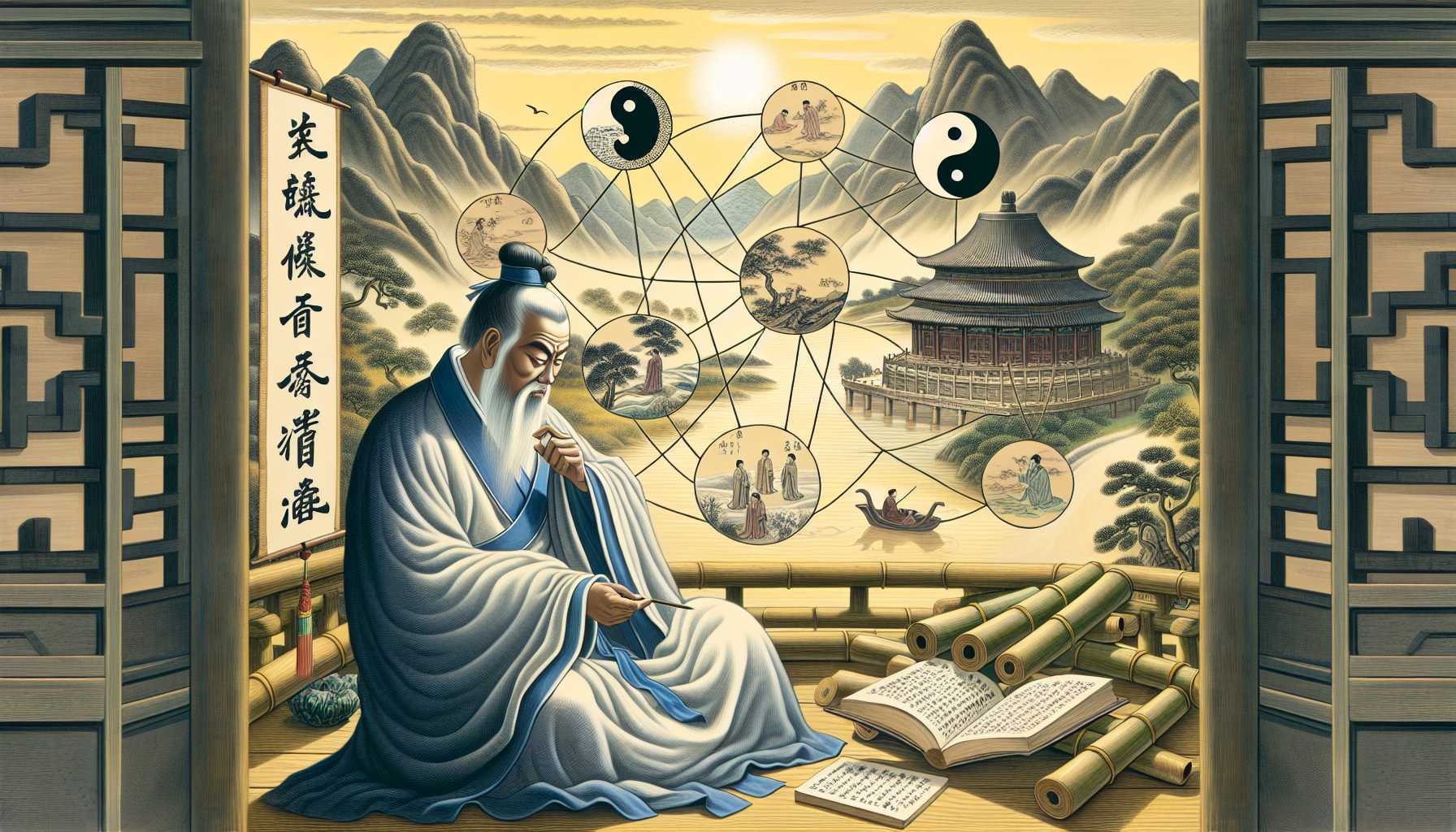
Confucius Life Teachings and Impact on Philosophy
The article on Confucius from the Internet Encyclopedia of Philosophy outlines the life, teachings, and impact of this influential Chinese philosopher.
inteonat cheolhak baekgwasajeon-ui gongja-e daehan gisa-neun i yeonghyangnyeog inneun jungguk cheolhakja-ui salm, galeuchim mich yeonghyang-eul gaeryakjeogeuro silhagemnida.
인터넷 철학 백과사전의 공자에 대한 기사는 이 영향력 있는 중국 철학자의 삶, 가르침 및 영향을 개략적으로 설명합니다.
Born in 551 BCE in the state of Lu, Confucius developed a moral and philosophical system that emphasized ethics, politics, and social harmony.
gongja-neun giwonjeon 551-nyeon-e noguk-eseo taeeona doedeokgwa cheolhak chaegye-reul gaebalhayeo yunri, jeongchi mich sahoejeok johwareul gangjohaessseubnida.
공자는 기원전 551년에 노국에서 태어나 도덕과 철학 체계를 개발하여 윤리, 정치 및 사회적 조화를 강조했습니다.
Central to his teachings are the concepts of Ren (benevolence), Li (ritual and proper conduct), and the importance of filial piety.
geu-ui galeuchim-ui jungsim-eneun in(仁), ye(禮), geurigo hyo-ui jungyoseong-i issseubnida.
그의 가르침의 중심에는 인(仁), 예(禮), 그리고 효의 중요성이 있습니다.
He promoted the idea that moral integrity and virtuous leadership would cultivate a just society, advocating for education as a means of self-improvement and societal benefit.
geuneun dodeokjeok seongpum gwa mideog inneun rideoship-i gongjeonghan sahoe-reul gireul su itdago chogguhamyeo, gyoyug-eul ja-agajeon-gwa sahoejeok iik-ui sudan-euro onguhamyeo.
그는 도덕적 성품과 미덕 있는 리더십이 공정한 사회를 기를 수 있다고 촉구하며, 교육을 자아개선과 사회적 이익의 수단으로 옹호했습니다.
Confucius's ideas were documented by his followers in texts such as the 'Analects,' which became foundational to Chinese thought and culture.
gongja-ui sasang-eun 'non-eo'wa gateun tekeu-seu-e uihae geu-ui chu jongjadeul-e uihae girokdoeeot-seubnida. ineun jungguk sasang-gwa munhwa-ui gicho-ga doeeot-seubnida.
공자의 사상은 '논어'와 같은 텍스트에 의해 그의 추종자들에 의해 기록되었습니다. 이는 중국 사상과 문화의 기초가 되었습니다.
Despite not gaining immediate prominence during his lifetime, Confucianism eventually rose to become a dominant ideology, influencing various aspects of Chinese governance, social structure, and personal behavior.
geu-ui saengae dong-an jeuggakjeogin jeomyeongseong-eul eojji mothaessjiman, yugyo-neun gyeolguk jibaejeogin ideollogi-ga doeeo jungguk-ui tongchi, sahoe gujo mich gaein haengdong-ui dayanghan cheukmyeon-e yeonghyang-eul michyeosseubnida.
그의 생애 동안 즉각적인 저명성을 얻지 못했지만, 유교는 결국 지배적인 이데올로기가 되어 중국의 통치, 사회 구조 및 개인 행동의 다양한 측면에 영향을 미쳤습니다.
The article also discusses the enduring legacy of Confucian thought, noting its relevance in contemporary discussions about ethics and governance, as well as its influence beyond China, impacting East Asian cultures and philosophies.
i gisa-neun ttohan yugyo sasang-ui jisokjeogin yusan-e daehan nonhamyeo, yunriwa tongchi-e gwanhan hyeondaejeog noni-eseo-ui gwanl성-gwa jungguk-eul neomeo dongasia munhwa-wa cheolhak-e michin yeonghyang-eul jumokhamnida.
이 기사는 또한 유교 사상의 지속적인 유산에 대해 논하며, 윤리와 통치에 관한 현대적 논의에서의 관련성과 중국을 넘어 동아시아 문화와 철학에 미친 영향을 주목합니다.
Overall, the article highlights how Confucius's teachings established a framework for moral conduct and social responsibility that shaped not only Chinese civilization but also broader philosophical inquiries into ethics and human relations throughout history.
jeonbanjeogeuro i gisa-neun gongja-ui galeuchim-i dodeokjeog haengdong-gwa sahoejeok chaegim-ui teul-eul eotteohge hwangnip-haessneunji-reul gangjoha-myeo, ineun jungguk munmyeongppunman anira yeoksa jeonban-e geolcheo yunri mich ingan gwangye-e daehan boda neolm-eun cheolhakjeog tamgu-reul hyeongseonghaessseubnida.
전반적으로 이 기사는 공자의 가르침이 도덕적 행동과 사회적 책임의 틀을 어떻게 확립했는지를 강조하며, 이는 중국 문명뿐만 아니라 역사 전반에 걸쳐 윤리 및 인간 관계에 대한 보다 넓은 철학적 탐구를 형성했습니다.
Based on this article
